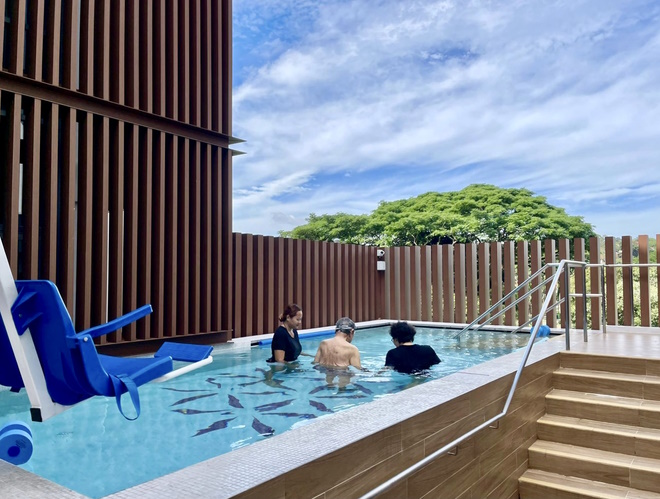
The Gen XY Lifestyle
Retiring Strong:Setting Healthy Goals for Active Seniors and Their Families
Setting healthy goals can be a powerful tool for active seniors who have grownup children to make positive changes in their lives.
By focusing on health and well-being, personal interests, community involvement, and relationships, it is possible for active seniors to lead more fulfilling and rewarding lives.
Some goals in the form of resolutions can provide us with purpose in our lives. Examples of recurring themes for older people include starting or maintaining a more active approach to health, staying connected to loved ones and learning new things for personal development.
A Rush University study found that people who view life with a sense of purpose are two to four times less likely to develop Alzheimer’s. In addition, the university found that self-disciplined and highly organised people are less susceptible to Alzheimer’s.
Mary-Ann Chiam, an Accredited Practising Dietitian at Allium Care Suites who specialises in working with elders introduces 5 simple and doable goals to keep active seniors engaged in healthy habits and connected with their loved ones all year long.
Eat Right, Live Well
During the festive season, food plays a huge role in every gathering – The holiday spread can be tempting and sometimes tormenting when it’s hard to stay on track and make healthy eating choices.
Although a little indulgence every once in a while, especially during the holidays, is acceptable, for active seniors and their children, who are in their forties or fifties, they should aim to be mindful and keep a balanced diet that will provide much-needed nutrients, vitamins, fibre, antioxidants and minerals. Moreover, they should endeavour to watch their portion sizes and try to limit their intake of processed and sugary foods.
Maintaining a nutritious diet can also help to prevent heart disease, high blood pressure, Type 2 diabetes and other chronic conditions. This will help to keep their body healthy and their mind alert when going about with their daily routine.
As long as a person stays well hydrated, does not skip regular meals and has a small snack before going for a festive meal, then they’d be able to enjoy the festive treats without overindulging and feeling guilty.
Stay Strong, Stay Active
It is never too late to adopt an active lifestyle, no matter your age.
According to HealthHub, engaging in physical activity helps to improve coordination, balance, circulation and mental acuity. In addition to the increase in physical stamina, older adults who engage in both aerobic and strength-training exercises benefit from the reduced risk of heart disease, lower blood pressure, controlled body weight and strengthened muscles.
To achieve such significant health benefits, older adults only need to engage in a moderate amount of activity, preferably on a daily basis, depending on their individual body’s capacity. It is not advisable to go from 0 activity to 100 and end up hurting yourself. Interestingly, working out with a partner, or a fitness group, enhances one’s commitment, consistency, motivation and duration to the exercises.
For some who face issues such as a gradual loss of mobility, there are exercises that put less strain on the body, such as chair yoga, swimming or tai chi. Both active seniors and their children can try online classes, from seated pilates to chair yoga, which is ideal for low-mobility individuals and novices.

It’s vital to find out if a senior has any pre-existing medical conditions, as this will take into account the type, frequency, intensity and progression of the activity that they should partake in.
Strengthen Your Mind
While many are aware that physical fitness supports good health, exercising the mind is equally important to keep your brain mentally sharp and in top shape.
For retired, active adults and their children, there are a myriad of ways to engage in cognitive training, such as creating art (e.g. painting, crafting, colouring), reading books, gardening, doing crosswords or playing games that require strategic thinking, such as chess.

Moreover, they can consider taking online courses or attending lectures, workshops or events in their local community that are related to their topic of interest. These are fun ways to ensure that the brain muscle is receiving an adequate workout.
Stay Social: Say Hi to Old Friends, and Make New Ones
Life is better when it is spent amongst family and friends. Research has shown that socially active seniors possess better cognition, lower risks of depression or dementia, and overall better health.
While physical limitations could make it challenging to expand their social circle and see family and friends pass away as they grow older, it is understandable that remaining socially active could be challenging.
However, with the use of social media, retired older adults can seek out old friends or meet new ones if they proactively choose to engage in the community or pick up hobbies that allow them to interact as a group.
One method is to schedule regular phone calls or video chats and plan regular family gatherings with their adult children.
Subsequently, meeting other people from different walks of life and building relationships that expose seniors to new experiences and schools of thought, would help to enrich a senior’s life and help them to stay positive. Being part of a group of family, friends, or community will help boost their sense of belonging and inspire positive living.
Invest in Rest: The Power of Restorative Sleep
Getting older doesn’t mean you have to be tired all the time. The National Sleep Foundation reported that adults are recommended to get seven or more hours of sleep, whereas their parents, who typically fall into the category of older adults (65 or more years old), should aim to keep a regular sleep schedule and get at least seven to eight hours of quality sleep each night. Aim to establish a regular sleep schedule, avoid engaging in phones or television screens before bedtime, and create a relaxing sleep environment to send signals to their body that it’s time to rest.

While there are many factors why slumber may elude seniors – ranging from sleep changes due to the effects of an ageing SCN to being in pain, feeling sick or having side effects from medication, establishing a good quality rest is essential for restoring one’s energy, regulating moods and is important for physical health and strength.
Photo by Sarah Brown on Unsplash Photo by Matheus Vinicius on Unsplash Photo by Ryan Concepcion on Unsplash






